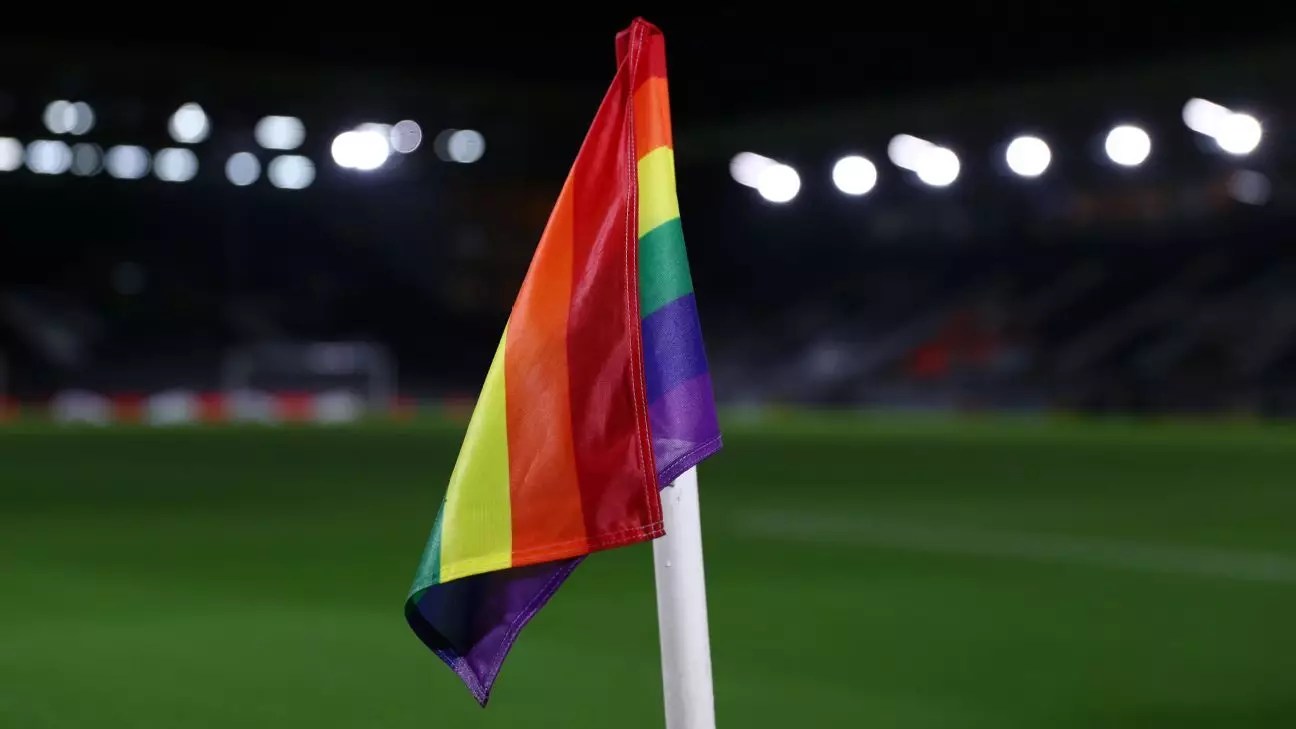The recent incident involving Monaco midfielder Mohamed Camara covering up an LGBTQ support message on his team’s shirt during a league game has sparked outrage and calls for sanctions. This action took place during the French league’s campaign against discrimination, where all teams were supposed to wear a badge featuring the word “homophobia” crossed out. However, Camara chose to tape over the badge and skip the pre-match photo with the message. This behavior has been deemed “unacceptable” by French Sports Minister Amélie Oudéa-Castéra and has led to calls for strict punishment.
French Sports Minister Amélie Oudéa-Castéra was quick to condemn Camara’s actions, calling for “firm sanctions” against both the player and the club. Additionally, Aurore Bergé, the French minister of equality, expressed her disapproval on social media by stating that “homophobia is not an opinion, it’s a crime” and calling for strict punishment. This demonstrates a strong stance from government officials in France against discrimination in football.
Monaco coach Adi Hütter mentioned that the club supports the league’s initiative against discrimination but described Camara’s actions as “a personal choice.” This response seems contradictory to the club’s supposed support for the LGBTQ movement, as covering the message goes against the spirit of inclusivity and diversity. The club has stated that they will address the situation internally, leaving the potential for disciplinary action against Camara.
The LGBTQ support initiative in French football, which involves using rainbow-colored numbers, armbands, or patches on shirts, has been ongoing for four consecutive seasons. However, similar controversies have arisen each year, indicating a persistent challenge in fostering a fully inclusive environment in the sport. Past incidents involving players like Idrissa Gueye and Mostafa Mohamed have also highlighted the complex intersection of personal beliefs, religious convictions, and professional responsibilities in football.
The incident involving Mohamed Camara underscores the importance of addressing discrimination and promoting inclusivity in football. It raises questions about the role of clubs, players, and governing bodies in upholding values of respect and diversity. Moving forward, it is essential for all stakeholders to actively support initiatives that combat discrimination and create a welcoming environment for everyone involved in the sport. Only through collective effort and unwavering commitment can football truly become a platform for positive social change.


Leave a Reply